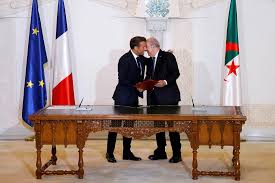
Diplomatic relations between Algeria and France have entered a turbulent phase, with ambassador recalls, expulsions, and sharp criticisms over freedom of expression marking recent exchanges.
Disputes surrounding Western Sahara, the conviction of writer Boualem Sansal, and the case of influencer Amir Boukhors have already strained ties.
Now, a new front of friction has emerged: the role of the French language in Algeria.
From the 2025 academic year, medical and pharmacy students in Algerian universities will no longer receive instruction in French, but in English, according to reports in Le Monde.
This shift is not merely a pedagogical adjustment.
It represents a deliberate political move to diminish the role of a language long seen as a colonial legacy.
French, which once served as a bridge for academic exchange, is increasingly being relegated to a symbolic, secondary status.
The change is most visible in the healthcare sector, where training future doctors and pharmacists in English aims to align curricula with international standards.
Yet the decision also carries a strong cultural and political message: Algerian universities are actively redefining their linguistic landscape.
“The marginalization of French is extending beyond classrooms,” noted local observers. “Public institutions are issuing directives to replace French with English across multiple sectors. What was once a diplomatic disagreement is now becoming part of everyday life.”
For France, the shift represents a symbolic loss of influence in a country where French had long retained a prominent role.
For Algeria, it is a statement of cultural sovereignty and a strategic alignment with a global scientific and economic environment dominated by English.
The long-term implications are significant. Generations educated in English will shape professional and scientific landscapes that no longer rely on French, potentially altering cultural and economic ties for decades.
French, caught in the crossfire of diplomatic tensions, has become an unexpected casualty. Beyond politics, this linguistic transition signals a broader cultural realignment between two nations historically united by language and history.



